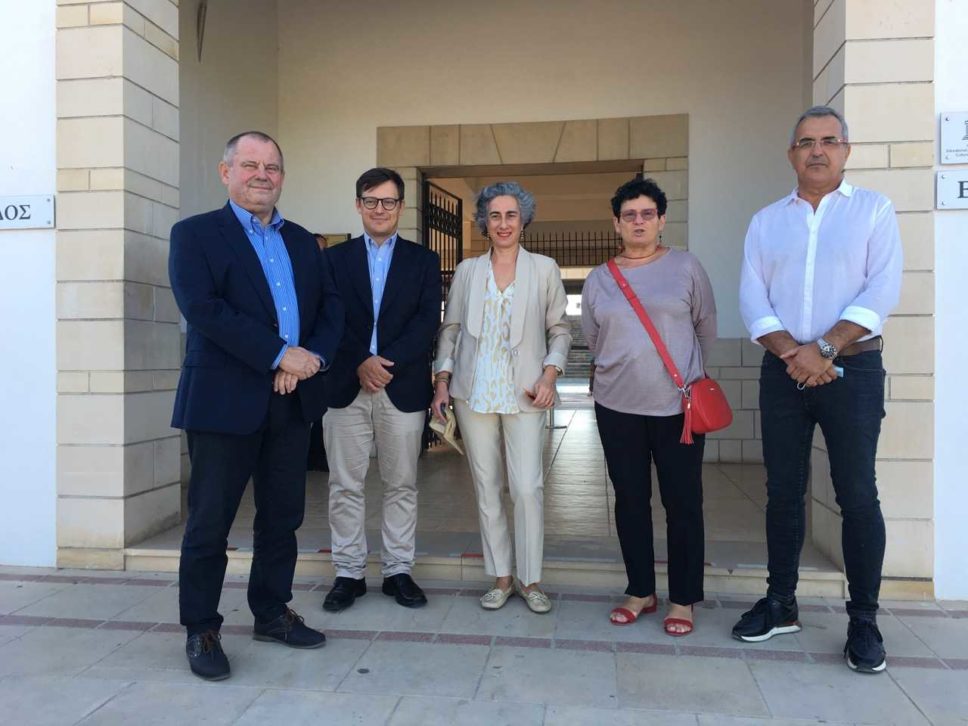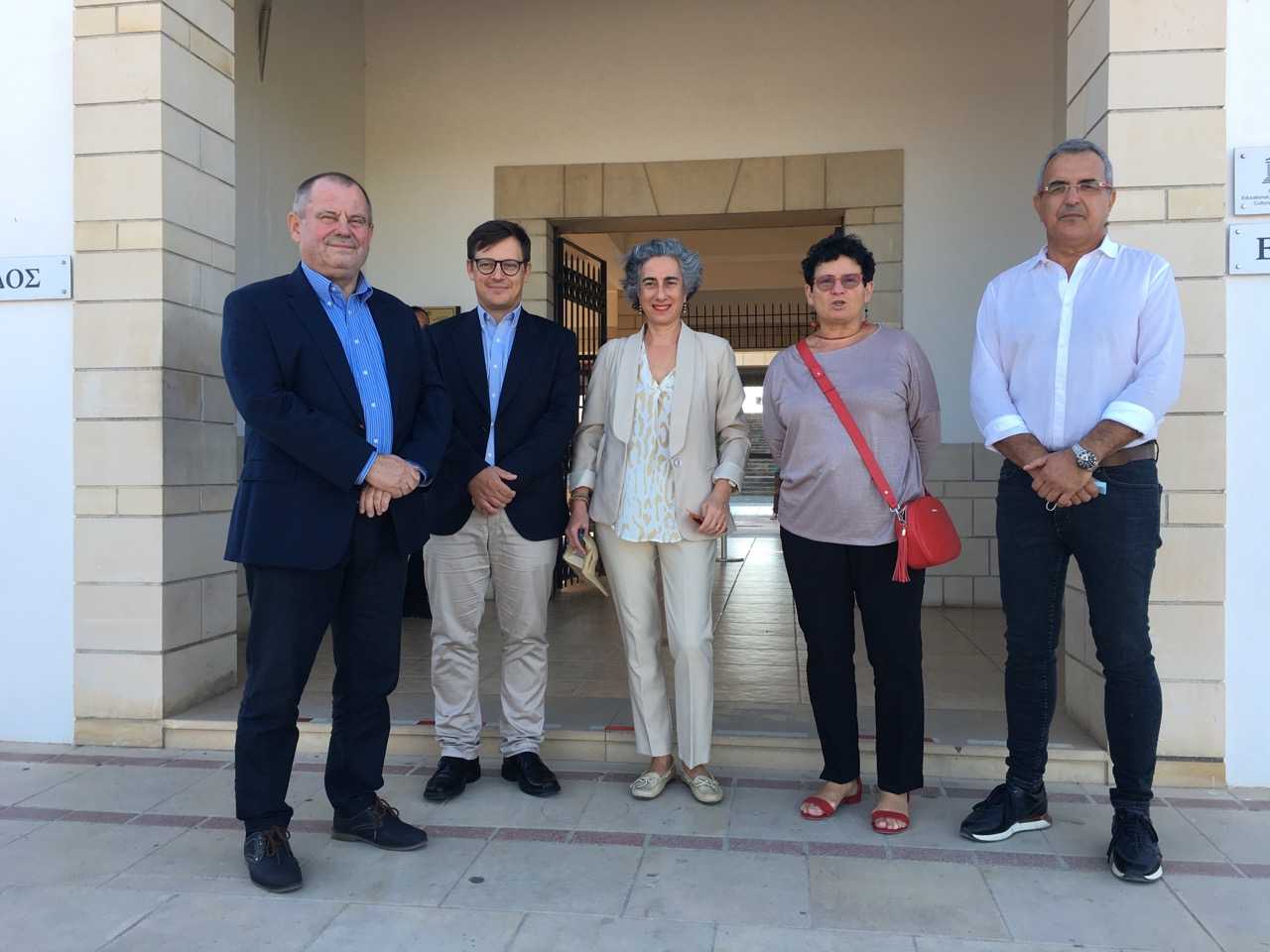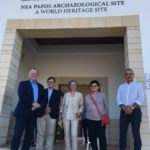The Polish Centre of Mediterranean Archaeology, University of Warsaw will set up a research centre in Paphos, Cyprus, where PCMA UW expeditions have been working for over half a century.
The first Polish archaeologists appeared in Cyprus over half a century ago, with the doyen of Polish Mediterranean archaeology, Professor Kazimierz Michałowski. Since 1965, a PCMA UW expedition has been working in Nea Paphos, one of the ancient capitals of the island. Its discoveries, including wonderful works of mosaic art and sculpture, contributed to the site’s enrollment to the UNESCO World Heritage List. These discoveries not only added to the knowledge of ancient culture, art and history of Cyprus and the entire Mediterranean world, but also contributed to the development of the city, becoming one of the biggest tourist attractions of Cyprus.
The PCMA UW expedition has been operating in Paphos for over 55 years and is the longest-running foreign archaeological research project in Cyprus. For over a decade, an expedition of the Jagiellonian University in Krakow has also been working in Nea Paphos, conducting research on the Agora, in the central part of the city. Recently, both expeditions have been combined into a joint project of the Jagiellonian University, PCMA UW and Warsaw University of Technology. There are also individual grant projects by several Polish researchers.
– The history of Polish research in Cyprus is very long and fruitful. After talks with the Cypriot side, we came to the conclusion that prospects for the future are equally far-reaching, – explains Assist. Prof. Artur Obłuski, director of the PCMA UW. – Therefore, it is worth institutionalizing this cooperation by setting up a permanent Research Centre in Paphos. Its presence and support will make the work of researchers visiting Cyprus easier and more efficient, just as is the case with the PCMA UW Research Centre in Cairo. Thanks to the new Research Centre, it will also be easier to create and implement joint Cypriot–Polish projects, – says Obłuski.
The Research Centre will have at its disposal premises which will be made available to Polish researchers, and its tasks will include:
– carrying out scientific research in Cyprus, particularly in the field of archaeology;
– cooperation with the Department of Antiquities of Cyprus and the Cypriot authorities;
– logistic and bureaucratic support for Polish scientific expeditions to Cyprus;
– strengthening cooperation with other researchers and archaeological expeditions working in Cyprus;
– cooperation with the Polish Embassy in Cyprus;
– popularization of Polish archaeological activities in Cyprus;
– promotion and archaeological education of the inhabitants of Cyprus and tourists visiting the island, especially the city of Paphos.
Prof. Ewdoksia Papuci-Władyka (JU and PCMA UW), head of the joint archaeological expedition in Nea Paphos, will take the post of PCMA UW Research Centre in Cyprus director.
The Greek name of the Research Centre is: Ερευνητικό Κέντρο στην Κύπρο του Πολωνικού Κέντρου Μεσογειακής Αρχαιολογίας Πανεπιστημίου της Βαρσοβίας
In short: Ερευνητικό Κέντρο ΠΚΜΑ ΠΒ στην Κύπρο
-
Prof. Alojzy Nowak Rektor UW, dr hab. Artur Obłuski dyrektor CAŚ UW, Dr Marina Solomidou-Ieronymidou dyrektorka Departamentu Starożytności Cypru, prof. Ewdoksia Papuci-Władyka kierowniczka nowopowołanej Stacji Badawczej na Cyprze oraz Dr Efstathios Raptou z Departamentu Starożytnosci Cypru (Fot. H. Chudzio)



